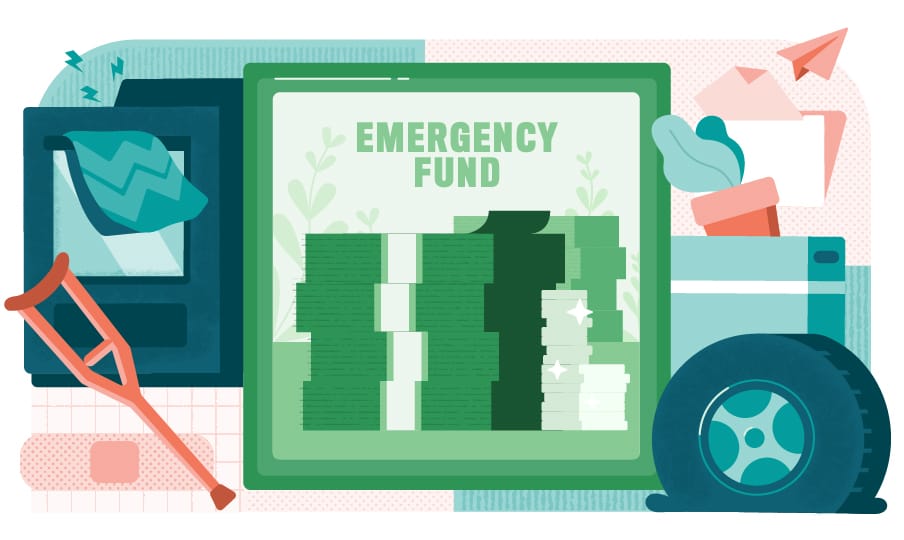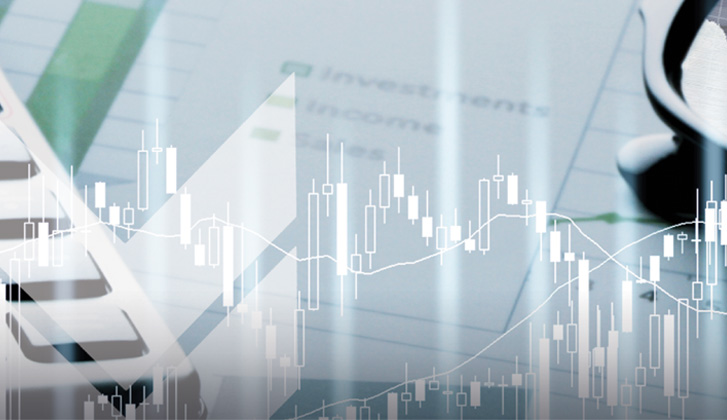NOTICE: Internet Explorer was retired by Microsoft on June 15th, 2022 and is no longer supported. This could change how you access Online Banking.
The Importance of an Emergency Savings Account

How Much Should My Emergency Fund Be?
Emergencies, by definition, are unforeseen events that result in the need for immediate action. Emergencies also have a reputation of being expensive. From urgent household repairs, like a broken water heater, to car accidents, unanticipated health concerns or a volatile job market- it’s critical to be prepared for the financial impact of the unknown with emergency savings. It’s not always easy building an emergency fund, but it does offer peace of mind when the unexpected happens. Let’s take a closer look at everything you need to know when it comes to emergency funds.
What is an Emergency Fund?
An emergency fund is a separate savings account that should be reserved for use only when the unexpected or unforeseen occurs. It’s always a good idea to keep this money separate from other savings accounts because it’s meant to be a safety net during financial hardships, not a nest egg for your dream getaway. Likewise, emergency savings funds shouldn’t be combined with long-term savings plans for a new home or college. It’s recommended emergency funds are separated from other accounts so it’s less tempting to dip into that account for something other than emergencies. You’ll want to let this account grow for its original purpose.
How Much to Have in an Emergency Fund
Since emergencies can potentially cause your bank account to take a hit, it’s essential you have the right amount of money saved to cover critical expenses. How much should you have in an emergency fund? The size of your emergency fund will depend on your lifestyle, monthly expenses, debt, income and dependents. The best way to find out is to add up your monthly costs for an estimate of critical expenses.
Critical monthly expenses account for housing, food, healthcare, utilities, transportation, debt payments or other personal expenses—like food and vet care for your pets. It’s not necessary to account for incidental expenses like entertainment, nights out on the town, shopping, vacations, or other goals you’re saving for. After adding up your critical monthly expenses, you’ll have a better idea of how much you’re going to need in an emergency fund.
Vanguard says experts agree that you should have three to six months’ worth of critical monthly expenses in your emergency savings. This number probably seems quite daunting, but there are easy ways to build up to your goal.
Building an Emergency Fund
Now that you have your goal in mind, review your current income to decide when you can have the account fully funded. Start small by cutting back on incidental expenses like eating out or purchasing coffee every day, and deposit that money into your savings. Another great option is reviewing your receipts and transferring the “You Saved $X Today” amount into your emergency savings. Soon, you’ll find it’s more feasible to fund this account with larger deposits.
Next, decide on a time frame to reach your goal and plan accordingly. One of the easiest ways to save is setting up an automatic transfer from your checking to your emergency savings account. Of course, over time you will need to adjust the amount you deposit based on your circumstances, scaling back to focus on other goals, or ramping up if you anticipate expenses coming, but this should help you establish a solid base.
The amount that you place into your emergency savings should be based on your bills, family needs and job security. Do you work in an industry that’s prone to lay-offs? You may want to save more. This is also the case if your income varies every month or during a recession. The ultimate goal of emergency savings is to support you if your regular income is affected in some way, which makes that three- to six-month number so important.
Emergency Savings Account Options
Emergency funds should always be placed in a simple savings account with easy access to the funds. WesBanco has a variety of savings accounts that can help you reach your emergency savings goal. Consider either the Companion Savings or Statement Savings account. These accounts have a low $50 opening deposit, pay interest on the entire collected balance, accrue interest regularly, and offer conditions to waive maintenance fees. They’re also ideal if you’re just starting to contribute to an emergency fund.
Whatever option you choose for your emergency fund, it’s important to remember that you’ve started the journey and saving something is better than nothing. Have the confidence that meeting your goal is closer every time you contribute a little bit to your emergency savings account.
Learn More about WesBanco’s Savings Options:
Content is for informational purposes only and is not intended to provide legal or financial advice. The views and opinions expressed do not necessarily represent the views and opinions of WesBanco.



